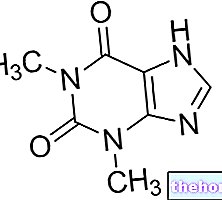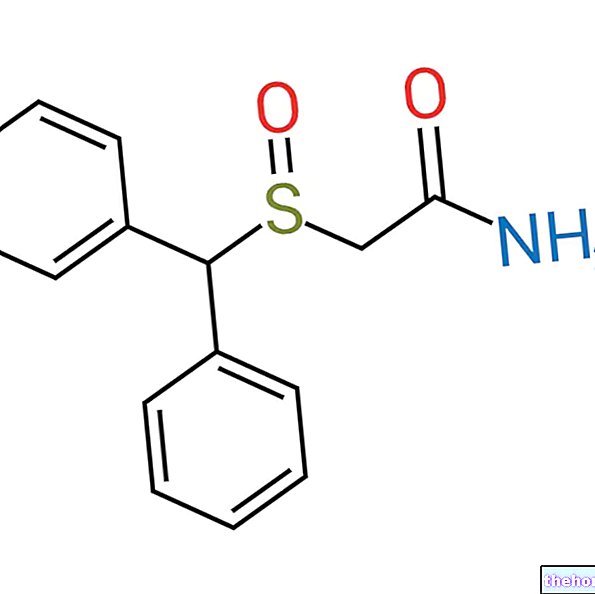
What is Prevenar?
Prevenar is a vaccine available as a suspension for injection containing parts of the bacterium Streptococcus pneumonitis (S. pneumoniae).
What is Prevenar used for?
Prevenar is indicated for the vaccination of infants and children aged two months to five years against diseases caused by S. pneumoniae. Such pathologies include: sepsis (infection of the blood), meningitis (inflammation of the membranes surrounding the brain and spinal cord), pneumonia (inflammation of the lungs), otitis media (inflammation of the middle ear) and bacteremia (presence of bacteria in the blood).
The medicine can only be obtained with a prescription.
How is Prevenar used?
The vaccination schedule to be administered depends on the age of the child and should be based on official recommendations:
- for infants between two and six months of age, three doses are needed. The first dose is usually given at the second month of age, with an interval of at least one month between doses. A fourth (strengthening) dose is recommended during the second year of life. On the other hand, when Pevenar is administered as part of a universal infant immunization program (collective and almost simultaneous vaccination of all infants resident in a given area), two doses may be administered with an interval of at least two months, followed by a dose of reinforcement between 11 and 15 months of age;
- for infants aged seven to 11 months, two doses are required, with an interval of at least one month between doses. A third dose is recommended during the second year of life;
- for children aged 12-23 months, two doses are needed, with an interval of at least two months between doses;
- for children aged 24 months to five years only one dose is needed.
The vaccine is to be given to infants by injection into the muscle in the thigh or into the deltoid muscle of the arm for young children.
How does Prevenar work?
Vaccines work by "teaching" the immune system (the body's natural defense system) to defend itself against a disease. When a person is vaccinated, the immune system recognizes the bacterium contained in the vaccine as "foreign" and makes antibodies against it. . In case of exposure to the bacterium after vaccination, the immune system will be able to produce antibodies more quickly. The body can then protect itself from diseases caused by these bacteria.
Prevenar contains small amounts of polysaccharides (a type of sugar) extracted from the capsule that surrounds the bacterium S. pneumoniae. These polysaccharides are purified and subsequently "conjugated" (bound) to a vector to favor a better recognition by the immune system. The vaccine is also "adsorbed" (fixed) to an aluminum-containing compound to stimulate a better response. Prevenar contains polysaccharides from different types of S. pneumoniae (serotypes 4, 6B, 9V, 14, 18C, 19F and 23F). It is estimated that in Europe they are responsible for about 54% and 84% of invasive infections (spreading to the whole body) in infants and children under the age of two, and between 62% and 83% of invasive infections in children between the ages of two and five.
How has Prevenar been studied?
The effectiveness of Prevenar in the prevention of invasive diseases caused by S. pneumoniae it has been studied in nearly 38,000 infants. Half of the children were vaccinated with Prevenar and the other half with another vaccine, not active against S. pneumoniae. Prevenar was given at two, four, six and 12-15 months of age. The study measured the number of children who developed invasive disease caused by S. pneumoniae over the 3.5-year duration of the study. Further studies measured the efficacy and safety of Prevenar in older infants, and the development of antibodies in infants following the two-dose immunization program followed by a booster dose.
What benefit has Prevenar shown during the studies?
Prevenar was effective in preventing invasive diseases caused by S. pneumoniae. In the main study, 49 cases of infection due to serotypes 4, 6B, 9V, 14, 18C, 19F and 23F of S. pneumoniae among children who were given the control vaccine compared with 3 cases recorded among children who were vaccinated with Prevenar. The additional studies showed that Prenavar was safe and effective in children up to five years of age. In infants, the two-dose immunization schedule induced the development of antibodies against S. pneumoniae, although at lower levels than the three-dose program. However, the CHMP considered it unlikely that there would be a difference in the level of protection against infections following the booster dose. S. pneumoniae when Prevenar is used as part of a routine immunization program, which includes vaccination of most infants.
What is the risk associated with Prevenar?
The most frequent side effects with Prevenar (seen in more than 1 in 10 patients) are vomiting, diarrhea, loss of appetite, local reactions at the injection site (redness, hardness, swelling or pain), fever, irritability, sleepiness and restless sleep. For the full list of side effects reported with Prevenar, see the package leaflet.
Prevenar should not be used in children who may be hypersensitive (allergic) to the vaccine for it Streptococcus or any of the other substances or diphtheria toxoid (an attenuated toxin from the bacterium that causes diphtheria). As with all vaccines, if Prevenar is given to very premature infants, there is a risk that it will cause apnea (short pause in breathing). Infants' breathing should therefore be monitored for up to three days after vaccination.
Why has Prevenar been approved?
The Committee for Medicinal Products for Human Use (CHMP) decided that Prevenar's benefits are greater than its risks for active immunization against invasive disease (including sepsis, meningitis, pneumonia, bacteraemia and acute otitis media) caused by serotypes 4 , 6B, 9V, 14, 18C, 19F and 23F of S. pneumoniae in infants and children from two months to five years of age. The committee therefore recommended the granting of a marketing authorization for Prevenar.
Learn more about Prevenar
On February 2, 2001, the European Commission issued Wyeth Lederle Vaccines S.A. a "Marketing Authorization" for Prevenar, valid throughout the European Union. The "Marketing Authorization" was renewed on February 2, 2006.
For the full version of Prevenar's EPAR click here.
Last update of this summary: 02-2008.
The information on Prevenar - pneumonia vaccine published on this page may be out of date or incomplete. For a correct use of this information, see the Disclaimer and useful information page.





.jpg)

















-nelle-carni-di-maiale.jpg)




